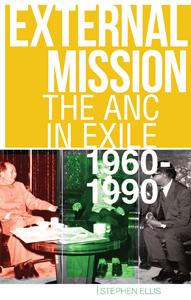Elections in Sudan: In Whose Interest?
“Even America is becoming an NCP member. No one is against our will”,
President Omer Albashir, in Sinar, Blue Nile City rally, 3 April 2010
Yesterday the African Union, under the leadership of former Ghanaian President John Kufuor, dispatched the final members of its 50 person strong team to monitor the elections in Sudan which are scheduled to begin on April 11th. The big question, however, today is whether there will be any elections to monitor.
Over the last two days the major Sudanese political opposition parties have said that they are withdrawing from the Presidential elections and boycotting the parliamentary ballot””to varying extents. Declaring that the “election lacks the minimum fundamental requirements of a free and fair election” the main opposition parties on Thursday, speaking as the Sudanese National Consensus Forces (SNCF), laid out a set of demands for their continued participation in the process, central to them is the postponement of elections until November 2010. Among the key conditions they have identified are: finding a just and comprehensive solution to the Darfur crisis and the full participation of its peoples in the election; fulfillment of the major pillars of the Comprehensive Peace agreement (CPA); review of the Electoral Act and formation of a new National Election Commission; and conduct of the self-determination referendum for Southern Sudan in January 2010.
As sections of the international community engage in strenuous lobbying to reverse this position and ensure that the elections go ahead as planned, the question must be asked: in whose interests is it to hold these elections now?
The suggestion that those who support the CPA must support these elections to maintain the CPA timeline at all costs bear little scrutiny: arguments relating to the sanctity of the CPA schedule and its integrity ring hollow when set against the litany of CPA violations cited in the SNCF’s comprehensive statement. As the international non-governmental organization Crisis Group said starkly last week in a report published on the election process, “the Khartoum government is rigging the 11-13 April elections in Darfur to return an indicted president and his party to power with catastrophic consequences for Sudan”. The ruling National Congress Party (NCP) “has manipulated the census results and voter registration, drafted the election laws in its favour, gerrymandered electoral districts, co-opted traditional leaders and bought tribal loyalties.” The opposition parties on the ground have confirmed this assessment. They have come to the same conclusion: elections now would be a travesty.
So what about the ordinary people of Sudan? Is an April vote in these circumstances in their interest? Does it promote their rights under the CPA and the democratic transition process? Certainly a critical issue for the people of Southern Sudan is whether a postponement of the election might delay the long awaited self-determination vote. The Government of South Sudan is particularly concerned about the creation of any new obstacles real or perceived to allowing their people to exercise their rights in the referendum on unity or independence. The circumstances surrounding the details of achieving independence are already deeply complex with issues such as border demarcation, security, and structures still not clarified. On Thursday the opposition forces said clearly that they believed that in the event of a postponement of elections to November the referendum should and could go ahead as scheduled in January 2010. It is vital that this guarantee is fulfilled.
The people in Darfur have been particularly subject to denial of their right to exercise a free and fair vote. As Crisis Group has said, the election violations by the NCP have been committed “most dramatically in Darfur, where it has greater freedom and means to carry out its strategy because of the ongoing conflict.”
The only party pushing for the vote in April is the National Congress Party (NCP), desperate to affirm legitimacy of its Presidential candidate who is subject to an arrest warrant from the International Criminal Court. Its chief international ally appears to be the United States (US), which, despite the occasional bombastic rhetoric for internal consumption by President Bashir, has been a staunch ally of Khartoum in recent months. As Bashir said on Wednesday about Special Envoy Gration’s emergency mission to Sudan to try to put the elections back on track: “Even America is becoming an NCP member. No one is against our will”.
The policy of the US and its allies towards Sudan is rapidly losing its neutrality and credibility in the eyes of the people. Despite the warnings from all domestic parties and independent international experts from the Carter Centre to the United Nations over the last weeks about the torture, the rigging and the fundamental unfairness of the election process, the Special Envoy Mr Gration only arrived for a whirlwind of crisis meetings earlier this week when it seemed like the farce would not go ahead after all as planned. What does this say to the people of Sudan? The fact that the Envoy has now thrust himself deeply into manipulation of the internal political dynamic, unabashedly attempting to influence the outcome of the debate in a way which supports the position of the ruling party is quite extraordinary. The fact that he is in substance walking hand and hand with a discredited and repressive regime must be highlighted.
President Obama in his policy and positions towards Africa regularly reflects on the need for respect for the autonomy of African people in making decisions and taking responsibility. His current policy in Sudan is diametrically opposite to that position. His Envoy to Sudan is playing the old game, obviously comfortably, his statements, positions and engagement with a regime that has been condemned locally and internationally reflects poor consideration for Sudan autonomy and the rights of the citizens of the country. US support for maintaining the status quo is creating fear and division another major factor in hindering Sudan overcoming its crisis. To move out of this dark period towards democratic transformation the sovereign will of the people of Sudan must be recognized and respected. This involves free and fair elections at home and an international community supportive of the exercise of democratic principles.
The Sudanese people have said NO to these elections at this time. Why is the US saying YES?
Sudan Democracy First Group
Sudan Democracy First Group is a coalition of and for Sudan activists, trade unionists and academics men and women representing Sudan different cultural and ethnic backgrounds. The main agenda of the initiative is to voice the concerns of the voiceless Sudanese people across the country at the current critical moment. The initiative is connected to other initiatives formed by Sudanese people in different centers across Sudan.







CONGRATULATIONS to Sudan Democracy First Group!! The legitimate election will be the one that brings a true democrat to power and sends AL-BASHIR to the ICC!
This is an excellent posting; I think the major problem Sudanese facing the last 20 years is they are looking for solutions to come from abroad. Most of the peace agreements reached in the last 5 years are due to foreign intervention especially from USA and other European countries. But the problem with the comprehensive peace agreement (CPA) is that the main peace brokers decided to stay away and not to put enough pressure to bear on the parties to honour their obligations special with the full implementation of the agreement regarding upholding the interim constitution, and taking measures needed ensure full democratisation. At the same time the different Sudanese forces were absent and failed to put enough pressure on the NCP to honour its commitment. I think some in the west have committed grave errors by asking Sudanese to be part of an election which they know is not going to reflect their true will. It is important for all Sudanese forces to work together to address the challenges facing the country I don’t think election with this sort will resolve the serious problems facing the country as its about to disintegrate , it needs more consensus politics than unilateral dividing policies which the country experienced for the last 21 years.
So my friends here will only call these elections free and fair if Bashir loses, even if he is the choice of the Sudanese people as is evident to everybody. A form of neo-democracy is in the making!